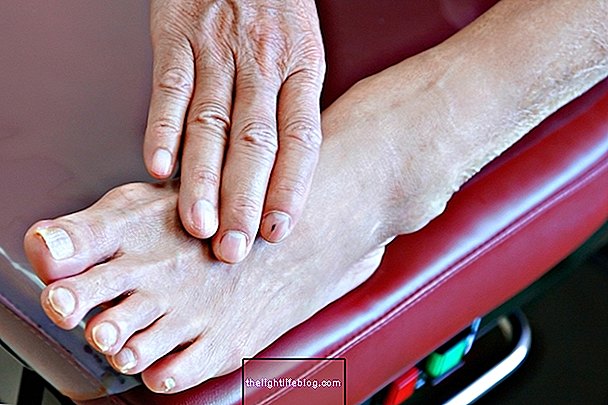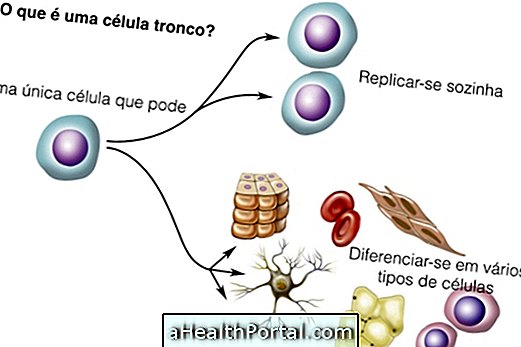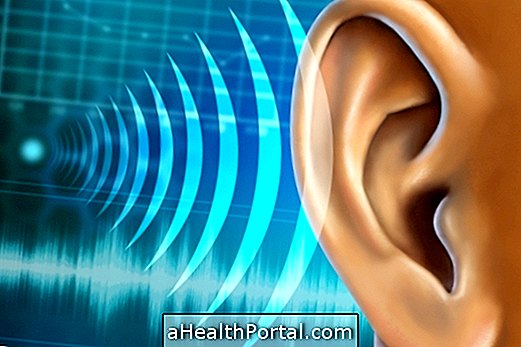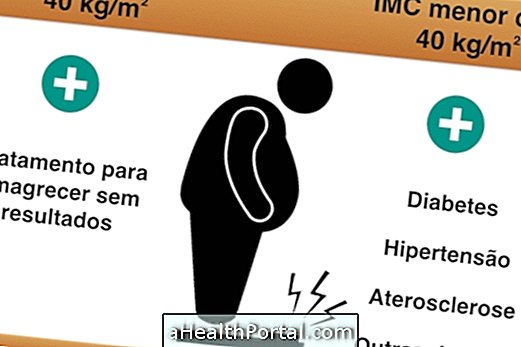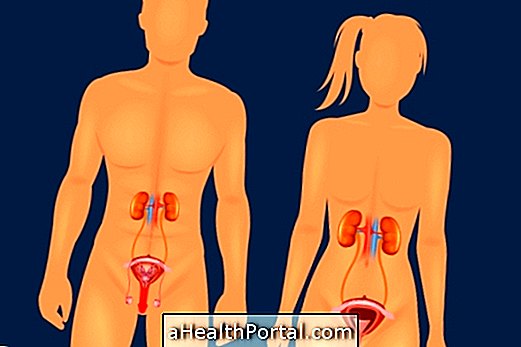Huntington's disease, also known as Huntington's chorea, is a genetic disease that causes dysfunction of movement, behavior, and the ability to communicate. It is a very rare disease, usually from the age of 25 to 45, which is progressive, that is, it gradually worsens.
This disease has no cure but there are treatment options with remedies to alleviate symptoms and improve the quality of life, prescribed by the neurologist or psychiatrist, such as antidepressants and anxiolytics, to improve depression and anxiety, or Tetrabenazine, to improve mood changes. movement and behavior.
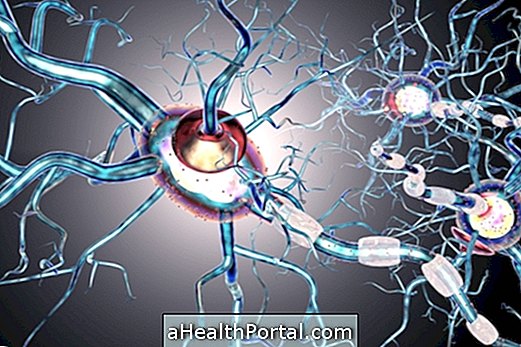
Main symptoms
The symptoms that characterize Huntington's disease are:
- Quick involuntary movements, called korea, that begin localized in a limb of the body, but which, over time, affect various parts of the body.
- Difficulty walking, talking and looking, or other changes in movement;
- Stiffness or trembling of muscles;
- Behavior changes, with depression, suicidal tendency and psychosis;
- Memory changes, and difficulties communicating.
The amount and rate of symptom development varies according to each case, and whether or not the treatment is performed.
Chorea is a type of movement characterized by being brief, such as a spasm, so often this disease may be can be confused with other situations such as Sydenham's chorea, which occurs in rheumatic fever with stroke, Parkinson's or by side effects of drugs, for example, which may also cause similar movements. Understand what are the main causes of tremor in the body.
What causes the disease
Huntington's disease occurs through a genetic change, which is passed on in a hereditary way, and which causes a degeneration of important regions of the brain. The genetic alteration of this disease is of the dominant type, which means that it is enough to inherit the gene of one of the parents to have the risk of developing it.
Thus, the diagnosis can be confirmed by genetic testing, which may also be useful for detecting at-risk individuals in the family, if recommended by the physician.
How is the treatment done?
To treat Huntington's disease, follow-up with a neurologist and psychiatrist is necessary, who will evaluate the presence of symptoms and guide the use of medications to improve one's day-to-day life. So, some of the medications that can be used are:
- Remedies that control movement disorders, such as Tetrabenazine or Amantadine: because they act on neurotransmitters in the brain to control these types of changes;
- Remedies that control psychosis, such as Clozapine, Quetiapine or Risperidone: help decrease psychotic symptoms and behavior change;
- Antidepressants such as Sertraline, Citalopram and Mirtazapine: can be used to improve mood and calm people who become very agitated;
- Mood stabilizers, such as Carbamazepine, Lamotrigine and Valproic acid: are indicated to control behavior impulses and compulsions.
The use of medication is not always necessary, and is used only in the presence of symptoms that bother the person. In addition, performing rehabilitation activities such as physiotherapy or occupational therapy are very important to help in controlling the symptoms and adapting movements.




.jpg)
